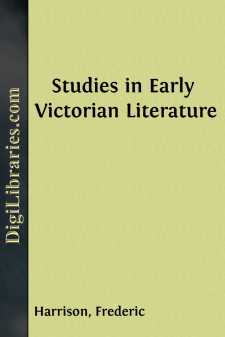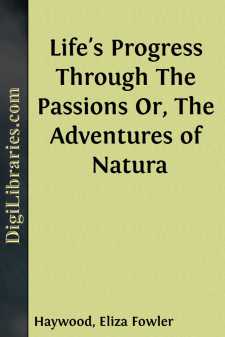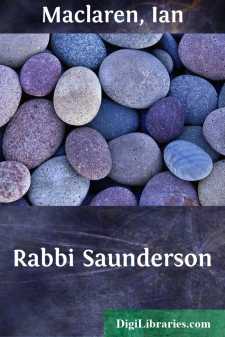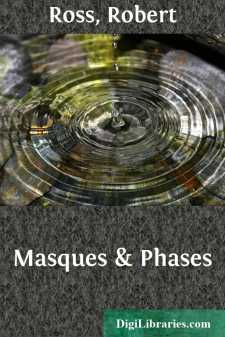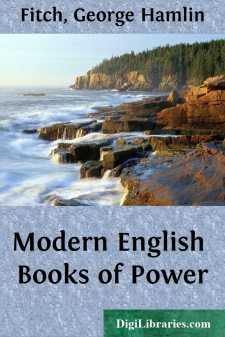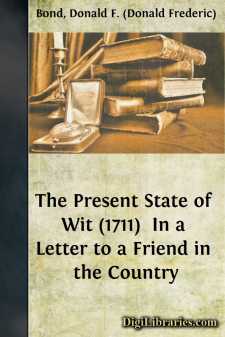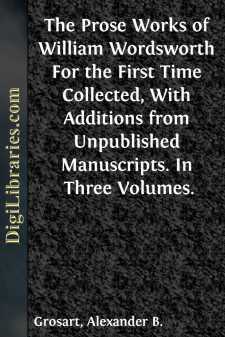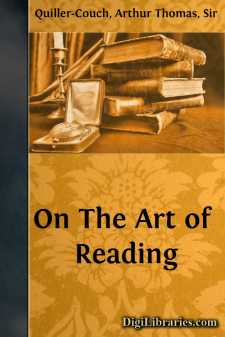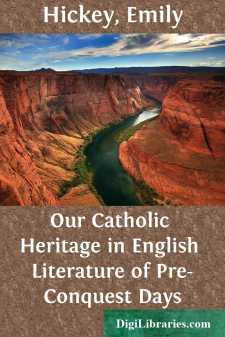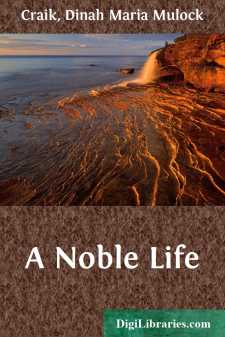Literary Collections
- American 84
- Ancient, Classical & Medieval 14
- Asian 1
- Australian & Oceanian 1
- Canadian 55
- Continental European 121
- English, Irish, Scottish, Welsh
- Essays 160
- General 24
- Letters 46
- Middle Eastern 1
English, Irish, Scottish, Welsh Books
Sort by:
CHARACTERISTICS OF VICTORIAN LITERATURE That which in England is conveniently described as the Victorian Age of literature has a character of its own, at once brilliant, diverse, and complex. It is an age peculiarly difficult to label in a phrase; but its copious and versatile gifts will make it memorable in the history of modern civilisation. The Victorian Age, it is true, has no Shakespeare or...
more...
BOOK the Third. CHAP. I. Shews in what manner anger and revenge operate on the mind, and how ambition is capable of stifling both, in a remarkable instance, that private injuries, how great soever, may seem of no weight, when public grandeur requires they should be looked over. Nothing is so violent as anger in its first emotions, it takes the faculties by surprize, and rushes upon the soul like an...
more...
by:
Ian Maclaren
A SUPRA-LAPSARIAN Jeremiah Saunderson had remained in the low estate of a "probationer" for twelve years after he left the Divinity Hall, where he was reported so great a scholar that the Professor of Apologetics spoke to him deprecatingly, and the Professor of Dogmatics openly consulted him on obscure writers. He had wooed twenty-three congregations in vain, from churches in the black country,...
more...
by:
Robert Ross
It is a common error to confuse the archæologist with the mere collector of ignoble trifles, equally pleased with an unusual postage stamp or a scarce example of an Italian primitive. Nor should the impertinent curiosity of local antiquaries, which sees in every disused chalk-pit traces of Roman civilisation, be compared with the rare predilection requisite for a nobler pursuit. The archæologist...
more...
Introduction My aim in this little book has been to give short sketches and estimates of the greatest modern English writers from Macaulay to Stevenson and Kipling. Omissions there are, but my effort has been to give the most characteristic writers a place and to try to stimulate the reader's interest in the man behind the book as well as in the best works of each author. Too much space is devoted...
more...
INTRODUCTION Gay's concern in his survey of The Present State of Wit is with the productions of wit which were circulating among the coffee-houses of 1711, specifically the large numbers of periodical essays which were perhaps the most distinctive kind of "wit" produced in the "four last years" of Queen Anne's reign. His little pamphlet makes no pretence at an analysis of true...
more...
TO THE QUEEN. MADAM, I have the honour to place in your Majesty's hands the hitherto uncollected and unpublished Prose Works of WILLIAM WORDSWORTH —name sufficient in its simpleness to give lustre to any page. Having been requested thus to collect and edit his Prose Writings by those who hold his MSS. and are his nearest representatives, one little discovery or recovery among these MSS....
more...
LECTURE I INTRODUCTORY WEDNESDAY, OCTOBER 25, 1916 I In the third book of the "Ethics", and in the second chapter, Aristotle, dealing with certain actions which, though bad in themselves, admit of pity and forgiveness because they were committed involuntarily, through ignorance, instances 'the man who did not know a subject was forbidden, like Aeschylus with the Mysteries,' and...
more...
by:
Emily Hickey
The beginnings of Literature in England. Two poets of the best period of our old poetry, Caedmon and Cynewulf. The language they wrote in. The monastery at Whitby. The story of Caedmon's gift of song.How many of us I wonder, realise in anything like its full extent the beauty and the glory of our Catholic heritage. Do we think how the Great Mother, the keeper of truth, the guardian of beauty, the...
more...
Chapter 1 Many years ago, how many need not be recorded, there lived in his ancestral castle, in the far north of Scotland, the last Earl of Cairnforth. You will not find his name in "Lodge's Peerage," for, as I say, he was the last earl, and with him the title became extinct. It had been borne for centuries by many noble and gallant men, who had lived worthily or died bravely. But I think...
more...


